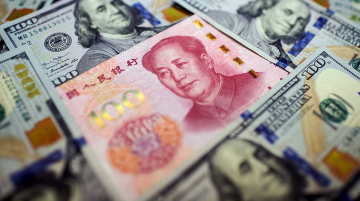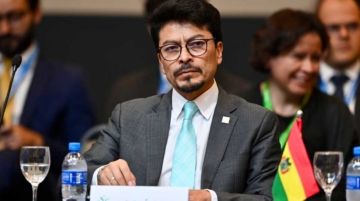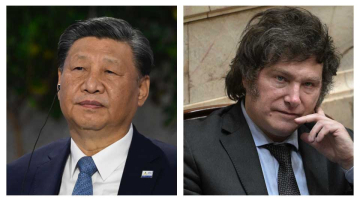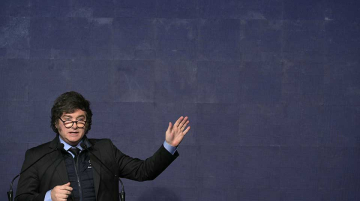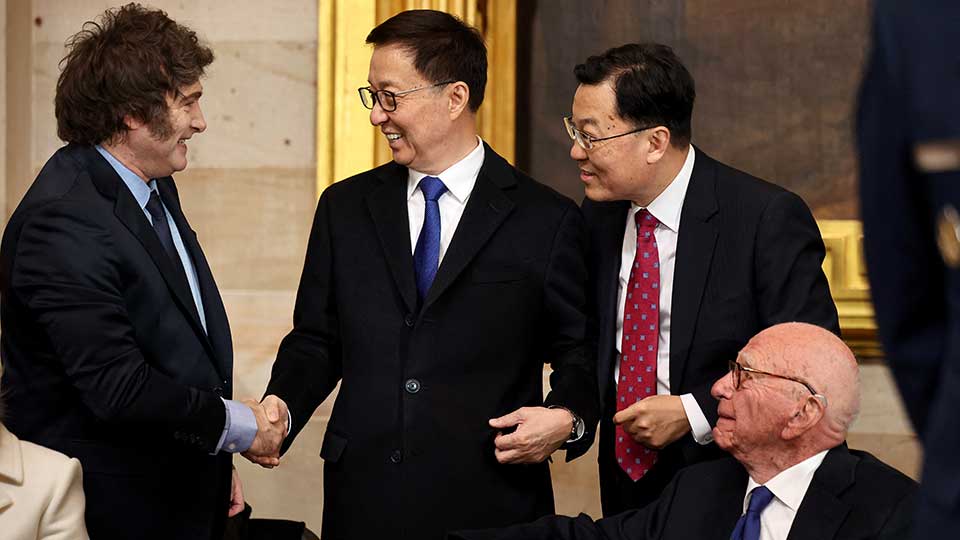
The cry “Cambio! Cambio! Cambio!” rings out along Calle Florida, the bustling commercial artery of Buenos Aires. Dozens of unofficial money changers—many of them migrants from Chile, Venezuela, and Bolivia—line the street, calling out to passersby. They offer mercado azul, or the “blue market” exchange rates, trading euros, dollars, and Brazilian reais for Argentine pesos in a shadow economy that thrives amid the country’s ongoing currency crisis.
Argentina is as renowned for the intimate embrace of the tango abrazo as it is for the runaway inflation that has plagued the country for years, and now during Javier Milei’s tenure as president.
Today, even travelers, digital nomads, and tango enthusiasts from North America—once drawn to Buenos Aires for its affordability and warmly welcomed by locals eager for U.S. dollars—are rethinking their plans. In a country where tomatoes now cost $5 a kilo, Argentina has become too expensive for many.
And as economic shifts reshape global alliances, a new question lingers: Could Chinese yuan one day be traded as easily as dollars on the streets of Calle Florida?
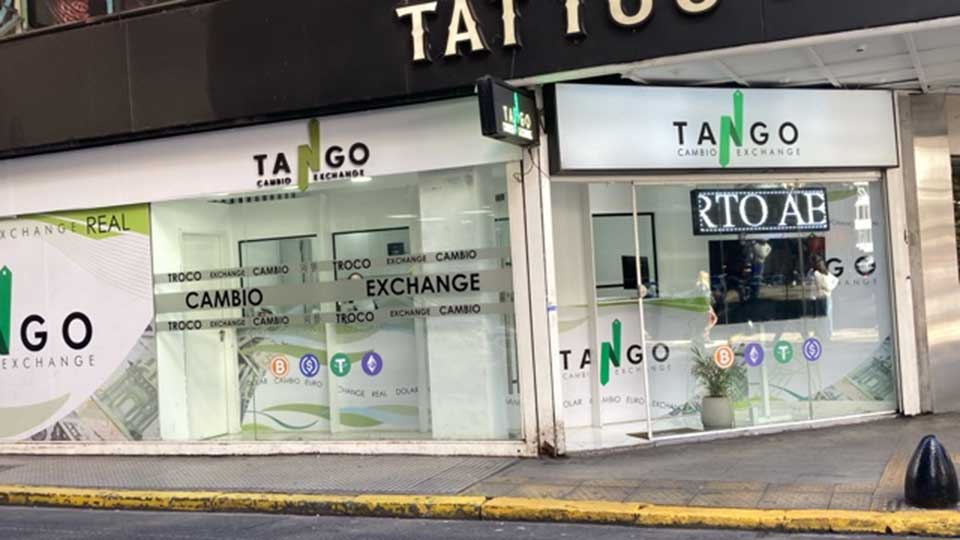
South America Draws Beijing’s Strategic Eye
Experts on Latin America–China relations have long studied the evolving reciprocity between Beijing and the countries of the Southern Cone—a subregion rich in lithium reserves and home to the regional trade bloc Mercosur.
Argentina notably declined to join the BRICS bloc but did sign on to China’s Belt and Road Initiative in 2022, followed by a detailed cooperation plan in 2023 that prioritizes infrastructure, energy, and industrial modernization.
Beyond the famed grapes and wines of San Juan and Mendoza, China has become the top destination for Argentine beef, accounting for over half of the country’s total exports. New Chinese-backed ventures are also taking root, including the Mariana lithium project in Salta, northern Argentina, and a high-profile nuclear power initiative in Patagonia—already drawing scrutiny in the national press.
The growing presence of the yuan in Argentina signals a deepening financial bond between the two countries. Since 2009, when then-President Cristina Fernández de Kirchner, recently convicted, signed a pivotal currency swap agreement with Beijing, Argentina has relied on Chinese support to bolster its foreign reserves.
The deal allowed the two central banks to hold reciprocal accounts: the People’s Bank of China maintains a renminbi account at the Central Bank of Argentina, while Argentina maintains a peso account in China. This arrangement enabled Argentina to access renminbi liquidity and, crucially, convert it into U.S. dollars—funds that were partly used to repay debts to the International Monetary Fund.
Milei’s Ideological Rhetoric Meets Economic Reality
Milei, a vocal ally of former U.S. President Donald Trump, made headlines during his campaign by declaring that he would not engage with “communist” regimes—a label he extended to countries like China and even Brazil under President Luiz Inácio Lula da Silva.
Yet in a striking reversal, Milei backtracked on that pledge and agreed to extend the longstanding currency swap agreement with China, securing access to an additional $5 billion. The move highlighted the complex realities in balancing ideological purity with economic necessity.
Unsurprisingly, the United States expressed disappointment over Milei’s reversal. In a bid to block the renewal of the currency swap, Treasury Secretary Scott Bessent traveled to Buenos Aires on April 14. His message was pointed: “What we are trying to keep from happening is what has happened on the African continent,” he said, signaling Washington’s concern that Argentina, too, could drift deeper into Beijing’s orbit.
Bessent reportedly threatened to withdraw the United States’ $20 billion Extended Fund Facility (EFF) loan—Argentina’s 23rd such arrangement with Washington since 1958 and a crucial bailout that preceded the Chinese swap.
But Milei remained unmoved, opting to proceed with the agreement with Beijing.
“We have always said that we are libertarians. If people want to do business with China, they can.”
javier milei, president of argentina
Máximo Badaró, a foreign policy researcher at Argentina’s National Scientific and Technical Research Council (CONICET), described Millei’s decision to deal with the Chinese as “inevitable.” In his view, China now holds “equal weight” alongside the United States, Europe, and Brazil in Argentina’s foreign relations, a sign of shifting geopolitical realities in the region.
The currency swap between Argentina and China risks becoming entangled in a broader currency war—one that parallels the global contest between the United States and China over trade, raw materials, and cultural influence.
Beijing has been steadily advancing the international use of the yuan, particularly through trade with nations across the Global South. The goal is to elevate the renminbi’s global stature and chip away at the dominance of the U.S. dollar. In Latin America, this strategy aligns neatly with a growing regional push for de-dollarization, led most vocally by Brazil, a founding BRICS member and champion of reforming the global financial system.
A Bank Emerges as China’s Frontline in Argentina
At the center of China’s expanding economic footprint in Argentina is the Industrial and Commercial Bank of China (ICBC). Since acquiring an 80 percent stake in Standard Bank Argentina in 2012, ICBC has grown into one of the country’s top eight private banks. It offers retail, corporate, and investment banking services—alongside consumer incentives such as discounts on the ICBC Mall, loans for Chinese-manufactured cars, credit card deals, and a full suite of digital banking tools.
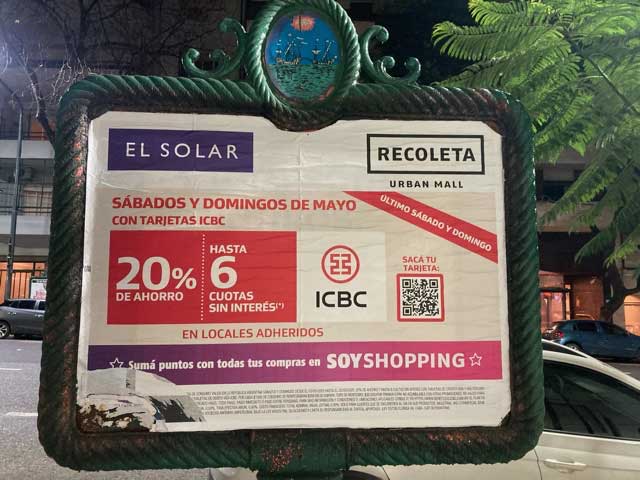
Beyond financial services, ICBC has supported a wave of Chinese investment in Argentina’s infrastructure and tech sectors. It has backed telecommunications projects by Huawei, whose market share in Argentina has surged in recent years, as well as initiatives involving Buenos Aires’ subway system (Subte), public infrastructure development, and aviation screening technology through the Chinese firm Nuctec.
These efforts form part of a broader strategy: to deepen China’s presence in Latin America by filling investment gaps left by the Argentine state.
In Buenos Aires, ICBC’s presence is impossible to miss. Its headquarters rise over Puerto Madero and along the city’s central artery, Avenida 9 de Julio. The bank has become a visible force in local advertising—reportedly with backing from the Chinese government—and a cultural patron as well, sponsoring institutions like the MALBA (Museo de Arte Latinoamericano de Buenos Aires) and placing ads in major outlets such as Clarín.
Yet its rapid rise hasn’t gone without friction. Many locals complain about the bank’s limited branch staffing and a lack of transparency in customer service. Still, curiosity continues to grow, and more Argentines are opting to open accounts or sign up for credit cards.
Jorge Myers, a professor at the Universidad Nacional de Quilmes, holds a savings account at ICBC. “The account where my salary is deposited—Banco Galicia—is free of charge, at least until I retire,” he said. “But if ICBC is still here then I plan to deposit my savings and retirement payments there. For now, I use ICBC credit cards, and I’ve had an excellent experience so far.”
The Rise of El Chino
Frustrated by local banking systems and rising prices, many Argentines have turned to Mercado Pago, a digital payment app modeled in part on China’s WeChat, to buy goods without paying taxes.
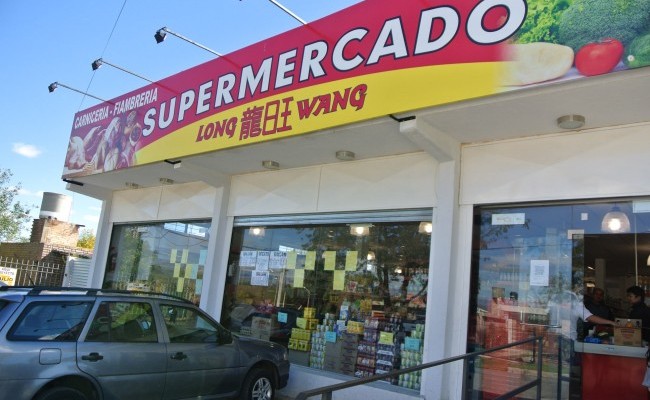
At the street level, informal workarounds are everywhere. In virtually every residential neighborhood, small Chinese-run shops—colloquially known as el chino—offer Malbec, fruits, clothing, and household goods, often imported directly from China, at prices up to 50 percent lower than those at major Argentine chains like COTO or Chilean-owned JUMBO. These shops, many owned by immigrants from China’s southeastern Fujian province, have become fixtures of urban life, operating in quiet parallel to the formal retail sector.
For Federico Gogna, a 40-year-old empanada vendor and former Ph.D. candidate in political science at the University of Buenos Aires, China’s role in Argentina’s economy is no longer abstract.
Born in Santiago del Estero, Gogna sees the country’s daily struggles—soaring prices, stagnant wages, and shrinking purchasing power—as problems no government can solve alone. President Javier Milei, he says, renewed Argentina’s trade and financial agreements with China not out of ideological realignment but because “he had no other option.”
To Gogna, China represents less a political system than a functioning one: “a fast and growing economy with a real interest in Latin America,” compared to the suffering that he feels is caused by the “financial interests of the United States.”
The renminbi is unlikely to displace the U.S. dollar anytime soon in Argentina, where the greenback has long symbolized economic security and upward mobility. But economists warn that as BRICS expands, so too does the bloc’s ambition to push non-dollar currencies—particularly the yuan—deeper into global circulation, especially in emerging markets.
In that context, Milei’s decision to move forward with the Chinese swap deal signals more than short-term pragmatism. It underscores a growing dependence on Beijing, not just as a buyer of Argentine exports, but as a financial partner and, increasingly, a consumer-facing presence. For many Argentines, the shift is already tangible. Whether through ICBC credit cards, Huawei smartphones, or daily purchases at the El Chino stores, Chinese alternatives are no longer distant or exotic. They are woven into daily life, quietly gaining ground alongside Argentina’s once-unshakable affinity for all things North American.
Melanie Shi is an independent researcher.


